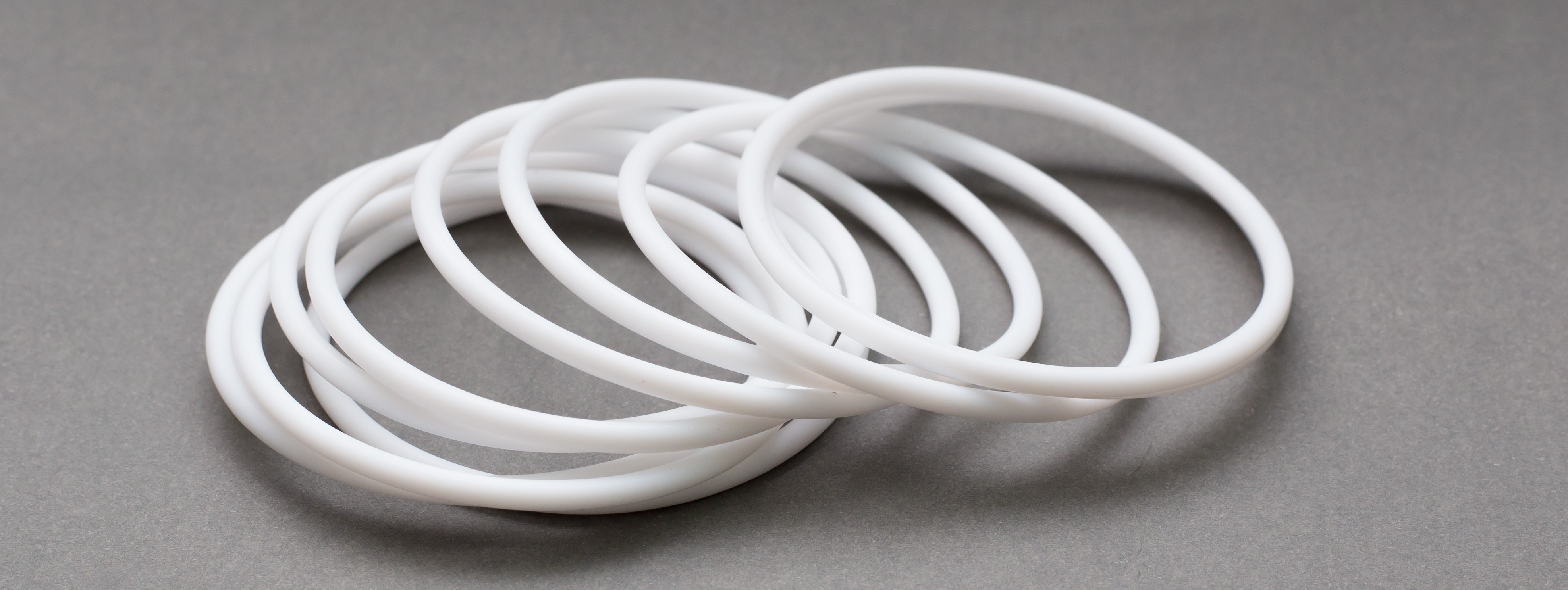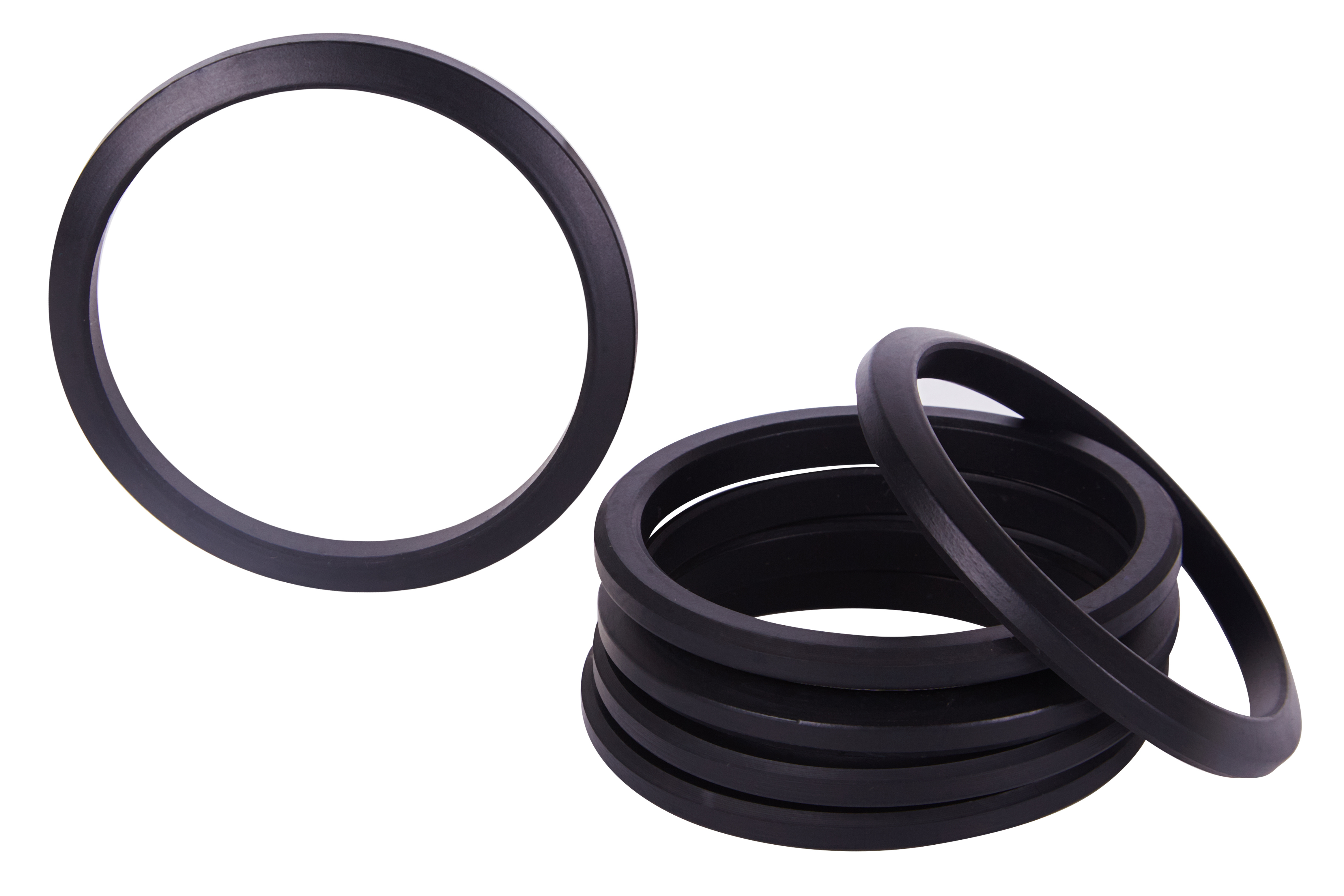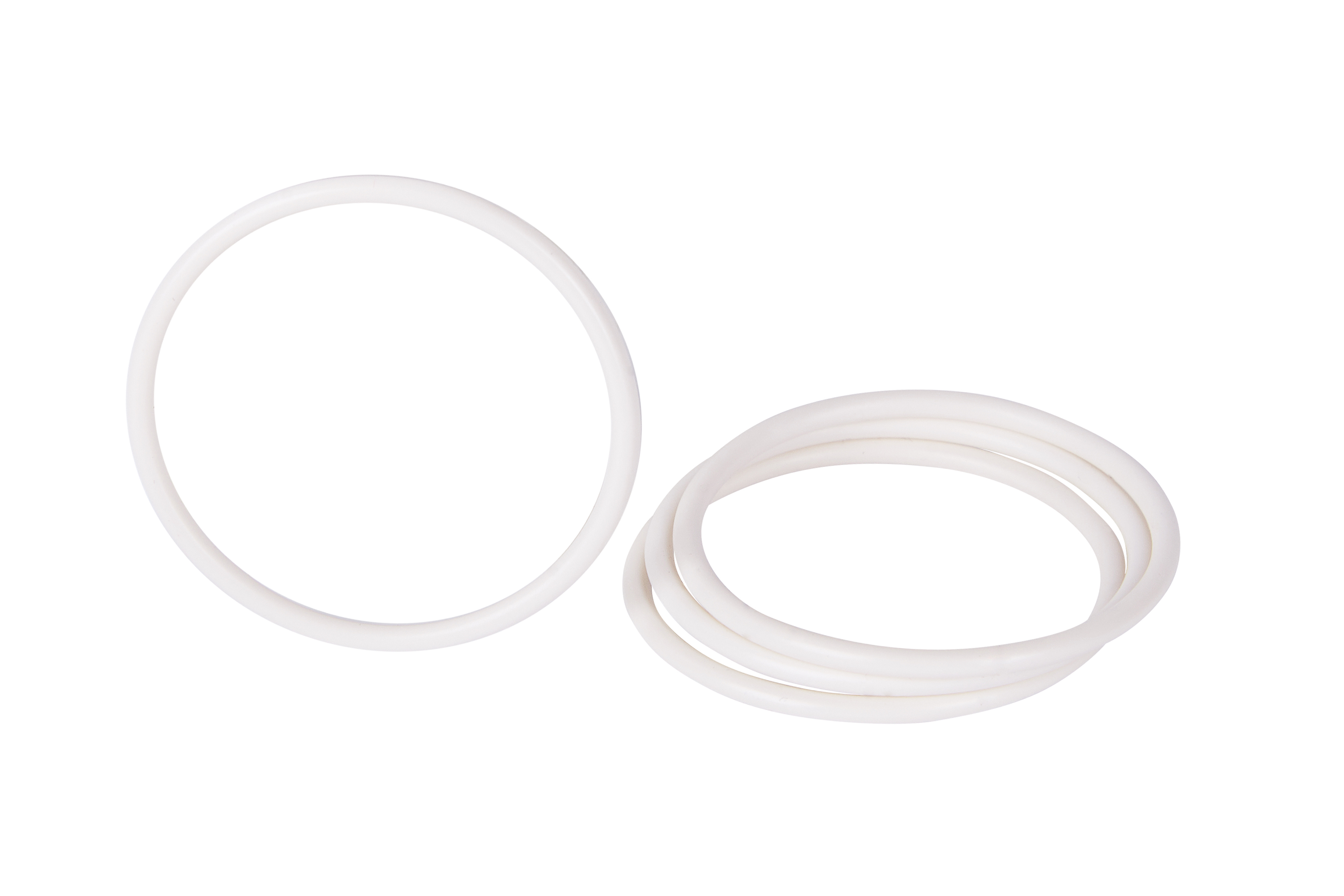As temperatures rise and environmental conditions grow more demanding, sealing solutions must be engineered to perform without compromise. UV rays, heat, moisture, ozone, and fluctuating weather can rapidly degrade unsuitable materials, leading to costly failures and unplanned downtime. Knowing how to choose sealing materials for UV, heat, and outdoor applications is critical to maintaining long-term reliability and protecting valuable assets. Selecting the right compounds, such as advanced PTFE blends along with high-performance EPDM and Silicone elastomers, ensures superior durability, dimensional stability, and consistent performance even in the most challenging environments.

Key Environmental Factors That Affect Sealing Reliability
- UV Exposure: Prolonged exposure to sunlight can weaken many materials, leading to cracking, discoloration, and loss of sealing integrity. Temperatures inside components can easily exceed 140°F under direct sun, accelerating deterioration.
- High Temperatures: While common elastomers begin to fail at temperatures above 158°F, certain applications require materials that maintain performance at 266°F or higher. Our advanced compounds are built to meet these extreme requirements.
- Ozone and Weathering: Natural ozone and ozone generated by nearby electrical equipment attack rubber compounds, reducing flexibility and lifespan. Our ozone-resistant materials ensure long-term reliability, even in tough outdoor conditions.
Our Top Materials for UV, Heat & Outdoor Exposure
Selecting the optimal sealing material is critical to maintaining performance and durability under demanding environmental conditions. Different materials offer unique properties tailored to withstand challenges such as UV radiation, elevated temperatures, and outdoor exposure. PTFE and FKM compounds are widely recognized for their exceptional resilience and reliability in harsh applications.
PTFE (Virgin and Filled Grades)
What Makes PTFE Stand Out:
- Unmatched UV Resistance: Thanks to strong carbon-fluorine bonds, PTFE is virtually immune to UV damage—no chalking, cracking, or fading.
- Exceptional Heat Performance: Continuous use up to 500°F; a melting point around 621°F ensures stability in fluctuating outdoor temperatures.
- Weatherproof Durability: Inert to water, salt, chemicals, and ozone; remains dimensionally stable and non-absorptive in all conditions.
Common Applications for PTFE:
- Oil & Gas: Offshore rigs, subsea equipment, and pipelines exposed to extreme temperatures and chemical environments.
- Heavy Industrial Machinery: Dynamic seals, bushings, and wear rings where heat, load, and abrasion are constant.
- Renewable Energy: Solar tracking systems and wind turbines are exposed to constant sun, wind, and environmental cycling.
- Aerospace & Defense: High-temperature, chemically aggressive environments where dimensional stability is critical.
Enhanced PTFE Blends for Specialized Needs:
- PTFE GL-MOLY (15% Glass / 5% Moly): Greater strength and dimensional stability—ideal for dynamic seals, bushings, and wear rings in outdoor machinery.
- PTFE CF (10% Carbon Fiber): Built for high-load, high-wear environments like offshore rigs and heavy equipment. Superior strength and heat dissipation.
- PTFE CGT (23% Carbon / 2% Graphite): Excellent for dry-running, high-speed applications such as solar tracking systems and wind turbines.
- PTFE BR-MOLY (40% Bronze / 3% Moly): Extreme mechanical strength with heat dissipation. Perfect for high-load rotary equipment and industrial machinery.

EPDM (Ethylene Propylene Diene Monomer)
What Makes EPDM Stand Out:
- Exceptional UV & Ozone Resistance: Withstands prolonged sun exposure, ozone, and outdoor weathering without degradation.
- High Heat Capability: Reliable performance up to 300°F (some grades up to 330°F), ideal for many long-term outdoor installations.
- Excellent Moisture and Weather Resistance: EPDM remains flexible and strong in rain, snow, and extreme temperature fluctuations.
Common Applications for EPDM:
- Automotive: Door and window seals, under-hood components, and weather-stripping.
- Recreational Vehicles (RVs): Roof seals, slide-out gaskets, and exterior weatherproofing.
- Plumbing and HVAC: Outdoor piping seals, rooftop units, and exposed gaskets where water, ozone, and temperature cycling are daily challenges.

Silicone
What Makes Silicone Stand Out:
- Superior Heat Resistance: Performs reliably from -75°F to 500°F, with excellent stability at both extremely hot and cold temperatures.
- Outstanding UV & Weather Resistance: Silicone resists UV degradation, oxidation, and ozone attack, even after years of exposure.
- High Flexibility Across Temperatures: Maintains flexibility and elasticity in wide temperature ranges, making it ideal for long-term sealing performance.
Common Applications for Silicone:
- Aerospace: Seals and gaskets in aircraft engines and aerospace systems are exposed to extreme temperatures and weather fluctuations.
- Food & Pharmaceutical: Sanitary seals, tubing, and gaskets for clean-in-place (CIP) systems, sterilization, and food-grade processing equipment.
- Water Processing: Gaskets and seals in potable water systems, filtration equipment, and chemical processing are exposed to fluctuating temperatures and chemical exposure.

Materials Less Suitable for UV, Heat, & Outdoor Exposure
While PTFE and FKM excel in demanding outdoor environments, some commonly used sealing materials fall short when exposed to UV, elevated temperatures, and prolonged weathering:
NBR (Nitrile Rubber):
- NBR is widely used for its oil and fuel resistance in controlled environments, but it lacks the necessary properties to withstand outdoor conditions.
- Poor UV and Ozone Resistance: Exposure leads to cracking, hardening, and rapid deterioration when subjected to direct sunlight or ozone.
- Limited Heat Capability: Typically, suitable only up to 212°F, making it vulnerable in high-temperature outdoor applications.
HPU (Hydrolysis-Resistant Polyurethane) & C-HPU (Cast HPU):
- These polyurethanes offer excellent resistance to water and hydrolysis, making them useful for submerged or humid environments.
- Limited UV Tolerance: Prolonged exposure to sunlight causes yellowing, embrittlement, and surface cracking over time.
- Moderate Heat Resistance: Generally rated for continuous service up to 230°F, making them unsuitable for higher temperature cycling common in many outdoor or high-heat applications.
Why Choose PSP Seals?
When your equipment operates in demanding environments, downtime isn’t an option. At PSP Seals, we combine premium sealing materials with deep engineering expertise to deliver the performance and reliability your operations require—regardless of temperature extremes, UV exposure, or harsh environmental conditions. What sets PSP Seals apart is not only our broad distribution capabilities but our in-depth understanding of the science behind sealing technologies.
Our experienced engineering team provides personalized technical support, assisting with material selection, custom designs, and application-specific challenges to help prevent costly failures and extend equipment life. Whether you're protecting valuable machinery, improving system reliability, or proactively addressing complex sealing requirements, PSP Seals delivers custom-engineered solutions backed by extensive industry knowledge.
Let’s keep your equipment running strong through every season and condition. Contact PSP Seals today to request a custom quote and explore our full range of sealing options.




